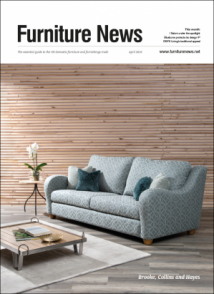The furniture industry has seen a clear shift towards sustainability and environmental topics. Important drivers have been new legal regulations and frameworks, but also initiatives of big players from within the industry itself who continuously push for sustainable solutions and processes for their products.
This is when the use of adhesives has moved into focus, with a revision of current practices throughout the different processes and applications. One main goal is to reduce the overall volume of adhesives to reduce the impact of transport, production and all aspects directly related to volume and weight.
For foiling and edgebanding applications the polyurethane hotmelt adhesive is an ideal solution. With a lower grammage (glue weight) in application, it also features an extraordinary resistance to heat, vapour and solvents that conceivably outperforms other hotmelts like EVA or polyolefin-based adhesives.
This shift to reduced glue volumes came along with a noticeable quality improvement. This phenomenon is today known under the term “innovability”: developing innovative solutions to promote sustainability that, in the best case, lead to even better products and results.

With regards to hotmelt PUR adhesives, Italian glue manufacturer, TAKA, has picked up the innovability approach and worked on the further improvement of sustainability aspects. The outcome has been two complete product lines that respond to different needs as requested by the market.
TAKA has launched a range of bio-based PUR adhesives that are already today in compliance with the industry’s roadmap and goals up to the year 2030. TAKA is committed to selecting bio-based content only from suppliers who have the same goals of sustainable growth, as well as traceability and transparency of raw materials.
The formulation of bio-based PUR adhesives includes a significant content of renewable raw materials while improving process efficiency and adhesive properties. These new products have been successfully introduced especially in edgebanding processes and the lamination of wood-based profiles and panels.
The second product range focuses on occupational safety and health protection. TAKA has grouped these new products under the name “low emission systems” (LESS), as they feature a reduced content of free isocyanate monomers of less than 0.1%.
These adhesives are “hazard-free”, and users are not subject to the mandatory training course for the safe handling of products containing diisocyanates. No compromises were made in terms of product properties during development. On the contrary, in some cases TAKA managed to obtain superior product characteristics.
The need for sustainable solutions will only increase, bringing those companies that adapt and innovate in the sense of innovability to the fore. Companies will need to adapt their processes to meet new industry standards, meaning that it’s essential to trust in strong partners that not only provide innovative solutions, but also share the same sustainability values.










